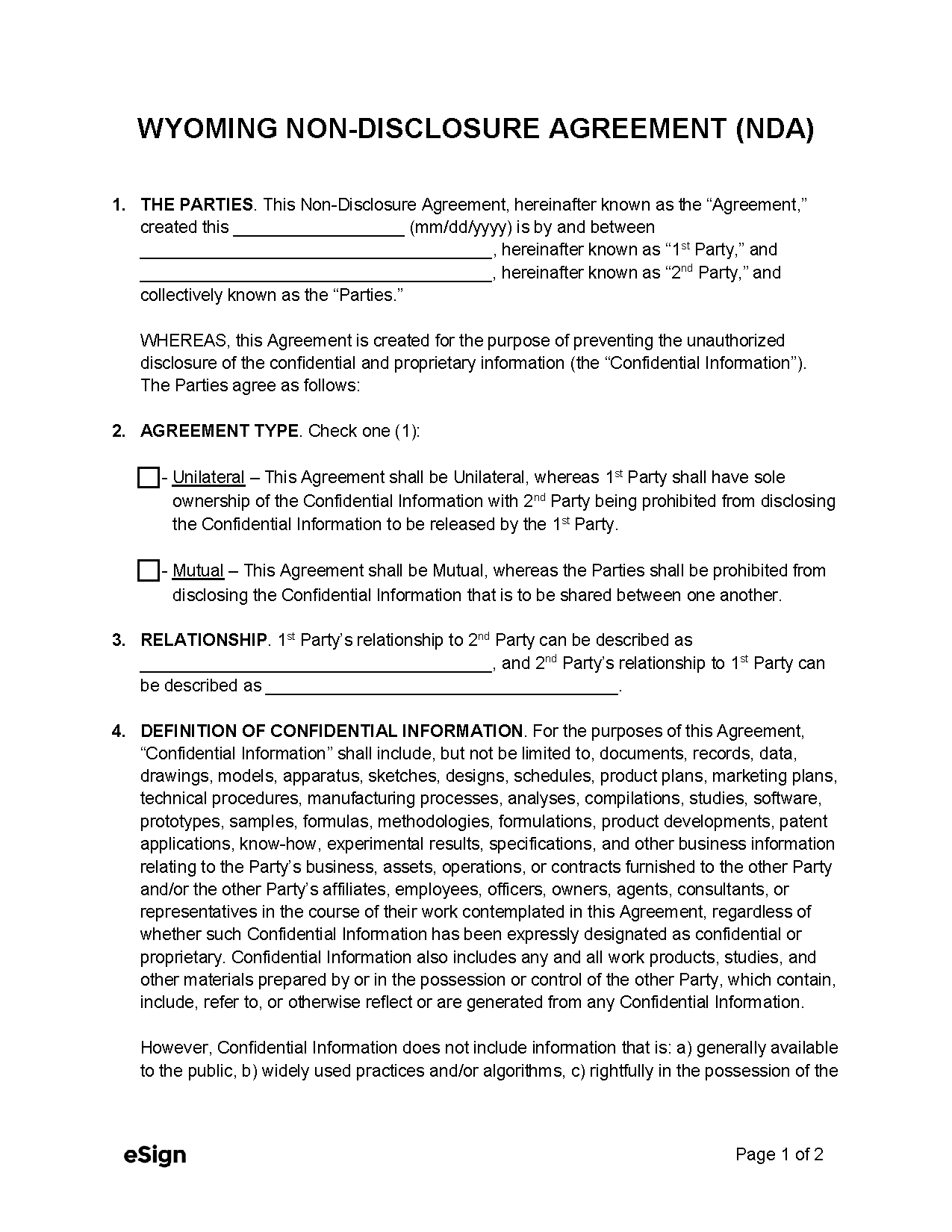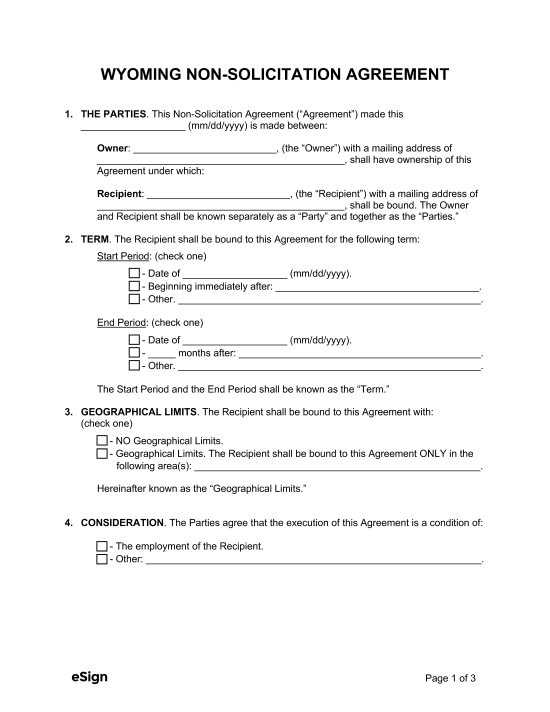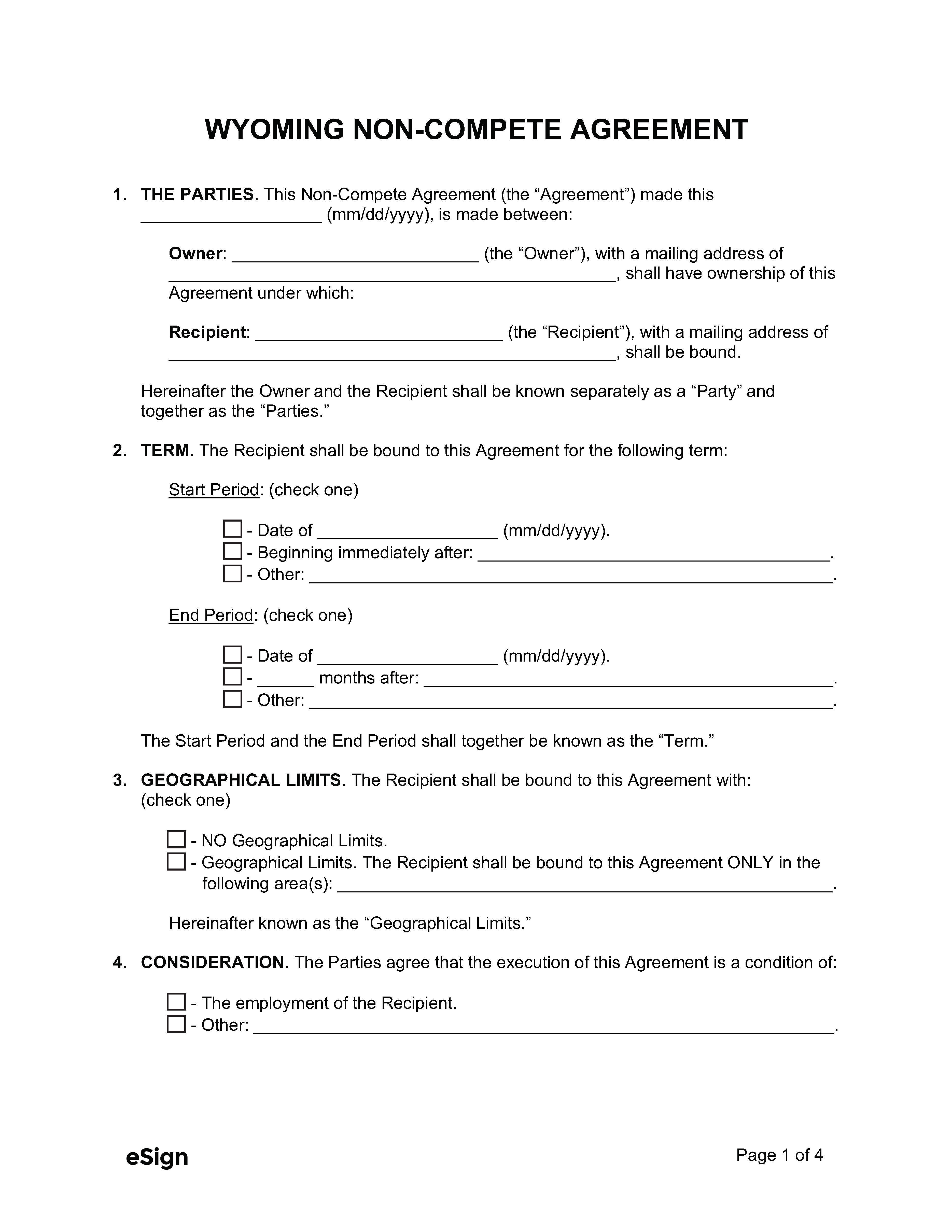Contents |
Enforceability in Wyoming
Non-compete agreements are enforceable in Wyoming. While they’re not mentioned in the state’s statutes, Wyoming courts have deemed that these restrictive contracts are valid, providing that they are:
- Part of an employment contract;
- In writing;
- Reasonable with regard to duration and geographical restriction;
- Not contrary to public policy; and
- Supported by sufficient consideration.[1]
Wyoming courts analyze all factors of each case to determine the reasonableness of the restrictive covenants. The factors that are weighed include, but are not limited to:
- If the employee must find a new profession or change residence.
- The training, education, health, and family needs of the employee.
- The nature of the position the employee held.
- The amount of knowledge the employee obtained regarding customer sources.
- The employer’s risk of losing customers.[1]
When it IS Enforceable
Wyoming courts have determined that to enforce restrictive covenants, there must be proof that the employer’s restrictions were fair and necessary to protect their legitimate business interests.[1] Examples of valid business interests include:
- Trade secrets;
- Confidential information provided to the employee;
- Influence the employee has over the employer’s customers.[1]
When it’s NOT Enforceable
- Lawyers. Lawyers may not enter into or offer any agreement that would prevent them from practicing law after the termination of employment, partnership, or as a part of the settlement of a client controversy.[2]
- Bad faith. If the agreement has been entered in bad faith, courts will find them unenforceable. An example of this is if the employer terminates an at-will employment agreement without just cause to limit competition, it will be construed as bath faith.[1]
Maximum Time Period
While no Wyoming statutes govern the durational limitations of non-competes, the court has determined that the duration of the contract must be limited to no longer than necessary to protect the employer’s business interests. For example, in one case, the court reduced a three-year non-compete agreement to just one (1) year because the court deemed that one year was sufficient to protect the employer’s interests.[1]
Shorter restrictions are more likely to be enforced than longer ones, such as the case where a seven-year non-compete was considered too long and injurious to the employee.[3] In some cases, lengthier restrictions may also be allowable under certain circumstances. For instance, the court upheld a lifetime non-compete because it was uniquely tied to a divorce settlement, and the husband failed to demonstrate that it was unreasonable.[4]
Geographical Area
Wyoming courts will determine if the geographical area of the restriction is reasonable on a case-by-case basis, taking into account all factors.
Often the court will uphold restrictions if it is based on where the employee worked and where the employer’s customers are. For example, the Supreme Court ruled in favor of an employer who deemed the former employee not allowed to practice medicine in Jackson, Wyoming.[5]
The court has determined that broad geographic restrictions may be upheld if a specific activity is restricted and the employer has a narrow customer base.[1]
Consideration
Consideration is the benefit the employee receives as a result of signing a restrictive agreement. Wyoming courts have ruled that an agreement signed at the initiation of employment is sufficient consideration; however, continued employment is not adequate. Once work begins, the employee must be provided with an increase in pay, status, training, benefits, or otherwise to justify the enforcement of a non-compete.[1]
It should be noted that no additional consideration is required in a post-employment agreement where an employee assigns intellectual property to the employer.[6]
Sources
- Hopper v. All Pet Animal Clinic, Inc., 861 P.2d 531 (Wyo. 1993)
- WY R RPC Rule 5.6
- Ridley v. Krout, 63 Wyo. 252, 262-79, 180 P.2d 124, 126-33 (1947)
- Holland v. Holland, 35 P.3d at 415, 2001 WY 113 (Wyo. 2001)
- Mott v. England, 604 P.2d 560, 561 (Wyo. 1979)
- Preston v. Marathon Oil Co., 277 P.3d 81, 88, 2012 WY 66, 33 IER Cas. 1651 (Wyo. 2012)
- Hassler v. Circle C Res., 2022 WY 28 (Wyo. 2022)
Related Forms (2)

Download: PDF, Word (.docx), OpenDocument

Download: PDF, Word (.docx), OpenDocument
